The Green Fix Election Special: So many elections, so little patience for the far-right
Here's how the political parties score on climate action and human rights - and why you should really really really use your vote.
If you’ve checked the news, looked at social media, walked down the street or left your house in the last month, you’ve probably heard there are elections going on. And the far right is gaining ground.
So we’re doing an election special.
I’m very aware that I’m an immigrant in Belgium. I’m also a neurodivergent woman. I have come here, used Belgian benefits and taken a job, all before learning the country’s languages or understanding any part of its culture. But presumably because I am white and European, nobody has questioned my right to be here or implied I should have fewer rights.
Quite a few leaflets have been coming through my door lately, inviting me to vote for ‘centre-right’ and far-right parties that promise to make life more difficult for migrants;
preserve stability and safety through greater police presence on the street;
and a stable economy based on incentivising people to find more work (in practice - by cutting benefits, which doesn’t actually work to increase employment).
It’s been far from convincing.
Sometimes I think people assume we work in climate activism because we’re bleeding-heart left-wing idealists. Actually, I knew very little about politics when I started working in climate advocacy. I just wanted to ‘make a difference.’
The more I learn, the more I lean towards a progressive and left-wing view of the world. The only thing that has ‘radicalised’ me is science.
We have the scientific evidence that policies for greater climate action, protection of nature, stronger social protection and human rights are a win-win-win for people, the economy and the planet. Not only that - they are necessary to secure a liveable future.
Stronger climate action and social justice are not political preferences, they are necessary for survival.
Politics based on fear of change, and on the belief that ‘other people’ are the problem, is bleak and dangerous - and paints a wildly inaccurate view of the world.
We don’t need to live with austerity, job insecurity and energy poverty. These are manufactured problems caused by our inequal economic system. We have plenty of resources - but the majority of them are being taken up by the 0.1% while homeless people sleep on the doorsteps of the European Parliament.
Why are we fighting each other for the scraps? Is this the economy we want to preserve? Who is winning in this status quo? It’s not me or you.
Politics should be aspirational. We should vote out of hope, not fear. Securing a better future for ourselves means securing a better future for everyone. In the EU we have the tools, the resources, the wealth and the money to create a far greener, fairer and more democratic society than the one we have now.
Cover image: Kristof Vadino
Focus On… The EU Elections
We’ve rounded up some resources to help figure out what the different political parties actually believe - not just what they claim to do.
What are the elections?
From the 6th to the 9th June, votes across 27 EU member states will decide who will make up the 720 politicians of the European Parliament for the next five years.
Members of the European Parliament have the power to amend and reject proposals for laws from the European Commission, and represent the interests of their political party and their country at the EU level.
Full guide in Politico: What are the elections?
French guide to how the EU works by Le Monde on Instagram.
What do the different parties promise?
Climate
The European Environmental Bureau has broken down the different parties ranked by their action for nature, pollution and the climate.
You can also check out a side-by-side comparison of party climate policies by topic in this analysis by Carbon Brief.
Young People
Generation Climate Europe have done a party analysis for their attention to young people and future generations.
Racial Justice
The European Network against Racism has invited EU election candidates to sign a pledge promising “actively building a European Union that is inclusive, diverse, and equitable for all its people.” The complete list of signatories is here.
They’ve also rounded up a summary of which parties currently have the most racially diverse MEPs. Currently the European Parliament has 4.3% of MEPs from racial and ethnic minorities – compared to 10% of the EU population. Representation is lacking and a right-wing majority would reduce those numbers even further.
LGBTQIA+
Following a surge in reported incidents of hate speech against the LGBTQIA+ community across Europe, ILGA-Europe invited EU candidates to sign their pledge to commit to defending the rights of gay, bisexual, lesbian, transgender and intersex people in their capacity as MEP.
You can see who signed the pledge here.
Women
The last years have seen a rise in patriarchal and oppressive ideologies, with national governments reversing abortion rights and scrapping national departments for tackling gender-based violence. Backsliding on women’s rights has dangerous and potentially fatal consequences for women across Europe.
In the EU, 1 in 3 women have suffered physical and/or sexual violence and 1 in 2 women have experienced sexual harassment since the age of 15. Fifty women die every week from domestic violence in Europe. And yet only 33% of EU ministers are women.
The European Women’s Lobby has created a feminist manifesto outlining what EU candidates should do to protect and improve women’s rights in the next mandate. You can read the whole guide here.
People with disabilities
The European Disability Forum has highlighted the inaccessibility of the EU voting and campaigning system for people with disabilities. None of the major party websites were made accessibility-friendly, and some common standards devised to make website interfaces more accessible had even been actively removed from the websites of the centre-right EPP and liberal ALDE parties.
Women with disabilities are 2 to 5 times more likely to experience violence, and all people with disabilities are more vulnerable to the impacts of climate change.
You can see which MEP candidates have pledged to protect the rights of people with disabilities here.
Farmers
Something about taking your tractors down the major roads in cities across Europe and showing up at the European Parliament gets people’s attention. Agriculture has become a political pawn in the upcoming elections.
Right-wing parties have been quick to latch on to the struggles of farmers and claim to speak for them (although it would be interesting to know how many of these right-wing politicians have ever been in a tractor) - while also looking to weaken the legislation that would help farming become more resilient to the impacts of climate change and removing incentives to switch to sustainable farming methods.
PAN Europe, Friends of the Earth Europe and Corporate Europe Observatory have analysed which politicians supported and which rejected laws to support nature-friendly farming in the last Parliament (breakdown by national parties also available).
More Resources
Human Rights Watch has also created a human rights guide to the EU elections covering the rights of refugees and migrants, digital rights, and the impact on poverty and inequality.
Do you have more resources to add here? Reach out by replying to this email and we will add them to the list.
I don’t like any parties. Should I just not vote out of protest?
You should vote.
A study by the Data Journalism Network found that 45% of eligible EU voters are not using their vote. Abstention is not a protest. Governments are not overhauled by your absence and silence.
Although youth participation has risen fast in the last few years, studies have also found that left-wing voters are less likely to vote strategically.
Young people are the most-affected by the political decisions made today. Many of you reading this are under 35. We are living in a climate crisis, cost of living crisis, we’ve lived through a pandemic and seen the rise of Trump and the increasingly extreme post-Brexit UK government, we will have front row seats to the consequences of climate inaction and political polarisation.
These problems have their root in economic and political systems that don’t represent us - and yet now the far-right is using young people’s disillusionment to get their support. And they are showing up to the polls.
It’s tough to think about, but burying our heads in the sand suffocates us eventually. The generations before us worked hard to secure us our hard-won right to vote and be heard - so use it in case we lose it. Voting isn’t an endorsement of the current political system. It’s a case of using every tool we have at our disposal. We have nothing to lose by voting but a lot to gain.
So Now What Do I Do?
USE YOUR VOTE.
More election stuff:
This is where EU political parties are getting their money from.
Almost three quarters of political donations are hidden from the public. And a quarter are going to extremist parties.
Some stuff to cleanse your brain:
The habits that have most improved mental health, according to readers of Positive News.
Edinburgh just banned adverts for high-carbon industries in the centre.
Why student protests for Gaza are a glimpse into a better world.
By the way… Come to our Climate Comedy night on the 6th June in Brussels!
If you’d like to support The Green Fix, please consider tipping us a virtual coffee.
Stay in the loop
You can follow us on Twitter @TheGreenFix, Instagram @thegreenfix_ and LinkedIn. Connect with Cass on Instagram @cass.hebron and LinkedIn Cass J Hebron.


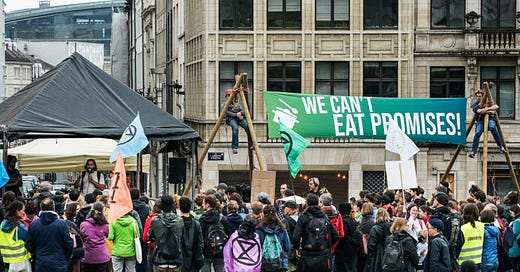


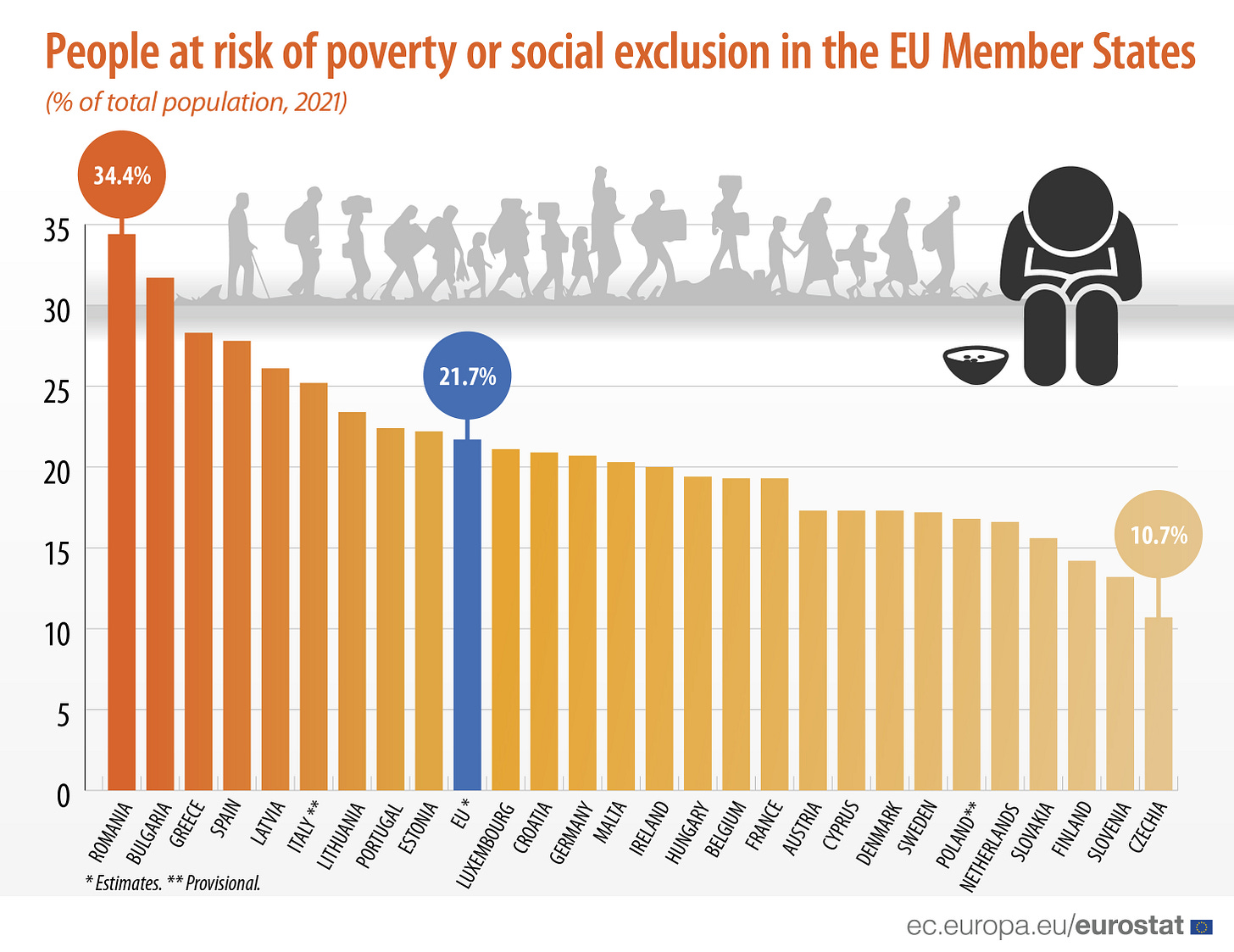

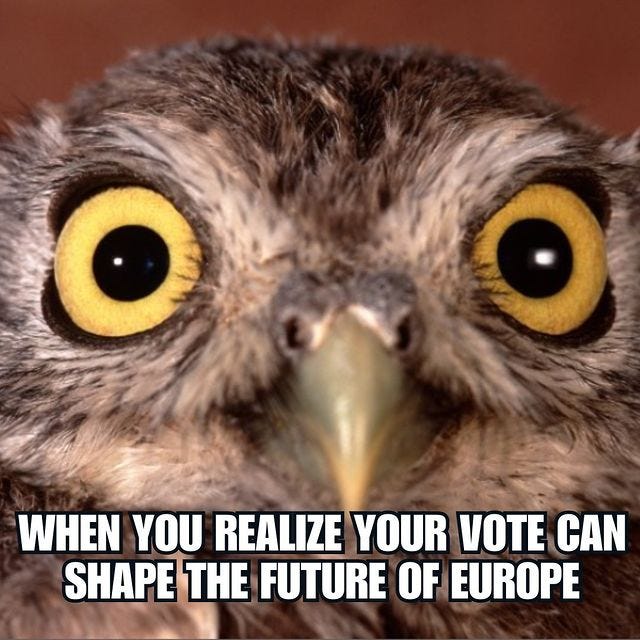






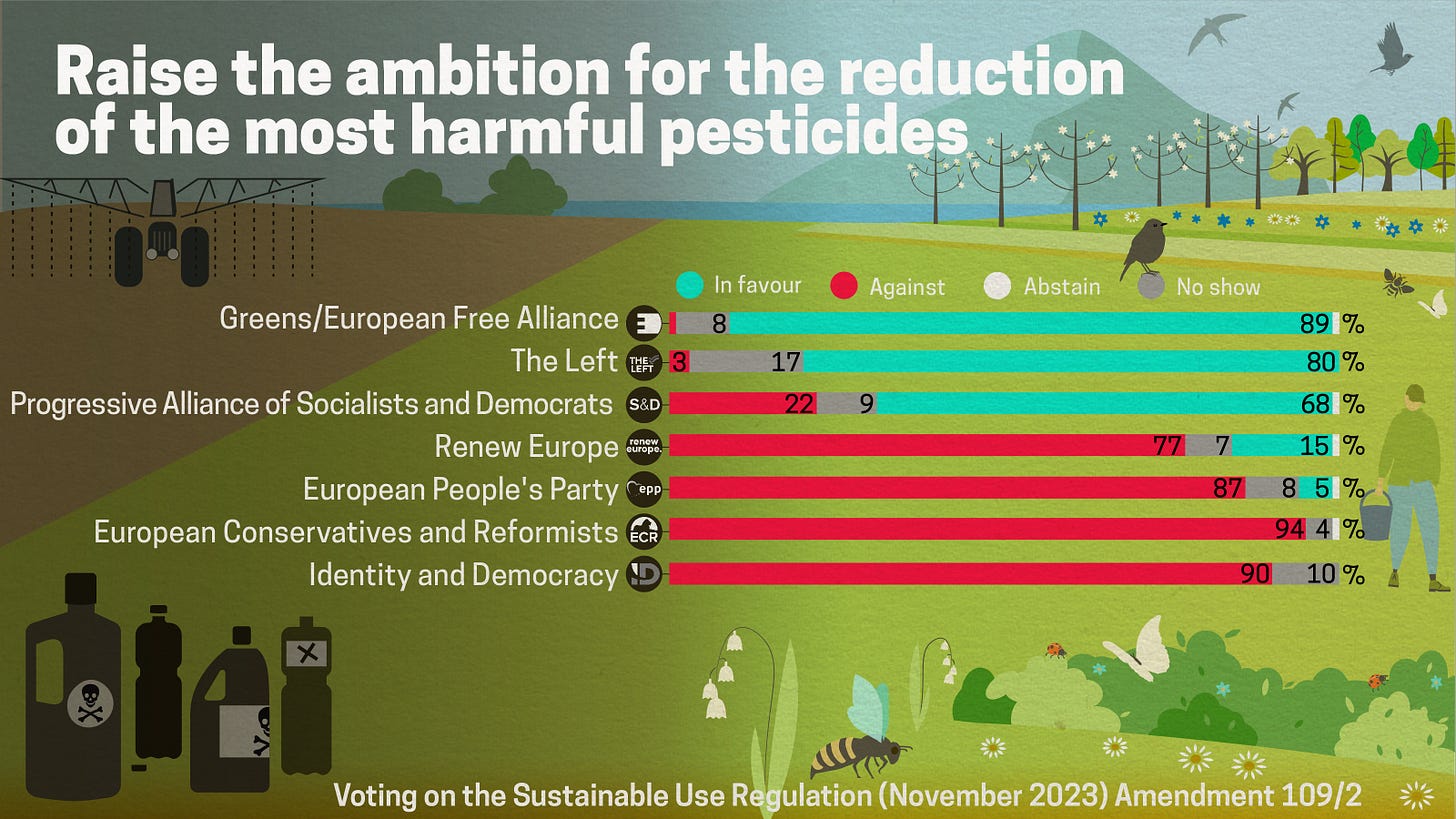
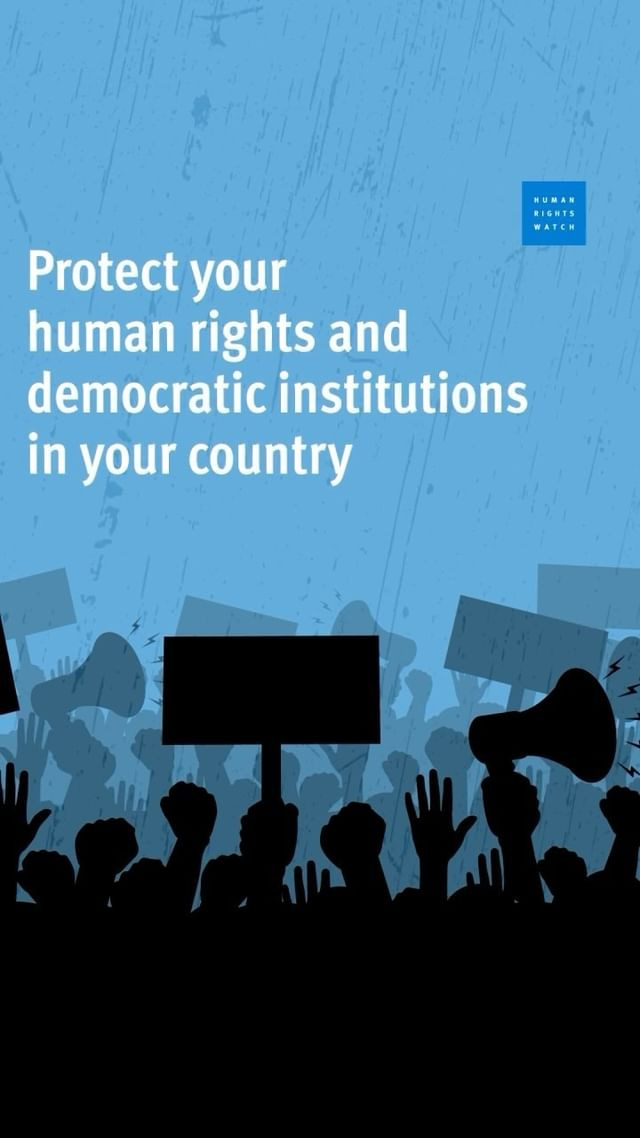

Thanks for writing this. It’s always baffled me the way people who emigrate outside of their home country are compartmentalised into ‘expats’ (white/Anglosphere people) and ‘immigrants’ (everyone else). While the options aren’t the most inspiring here in the UK, I hope we’re going to witness a sea change away from the fear mongering right wing politics that’s dominated the past decade
I don't think the ENAR statistics take into consideration the seats division tho? Of course S&D has more racialised MEPs than Greens/EFA, they have more than the double of MEPs than Greens/EFA. This says a lot also about EPP who has less even being the party with most of MEPs.